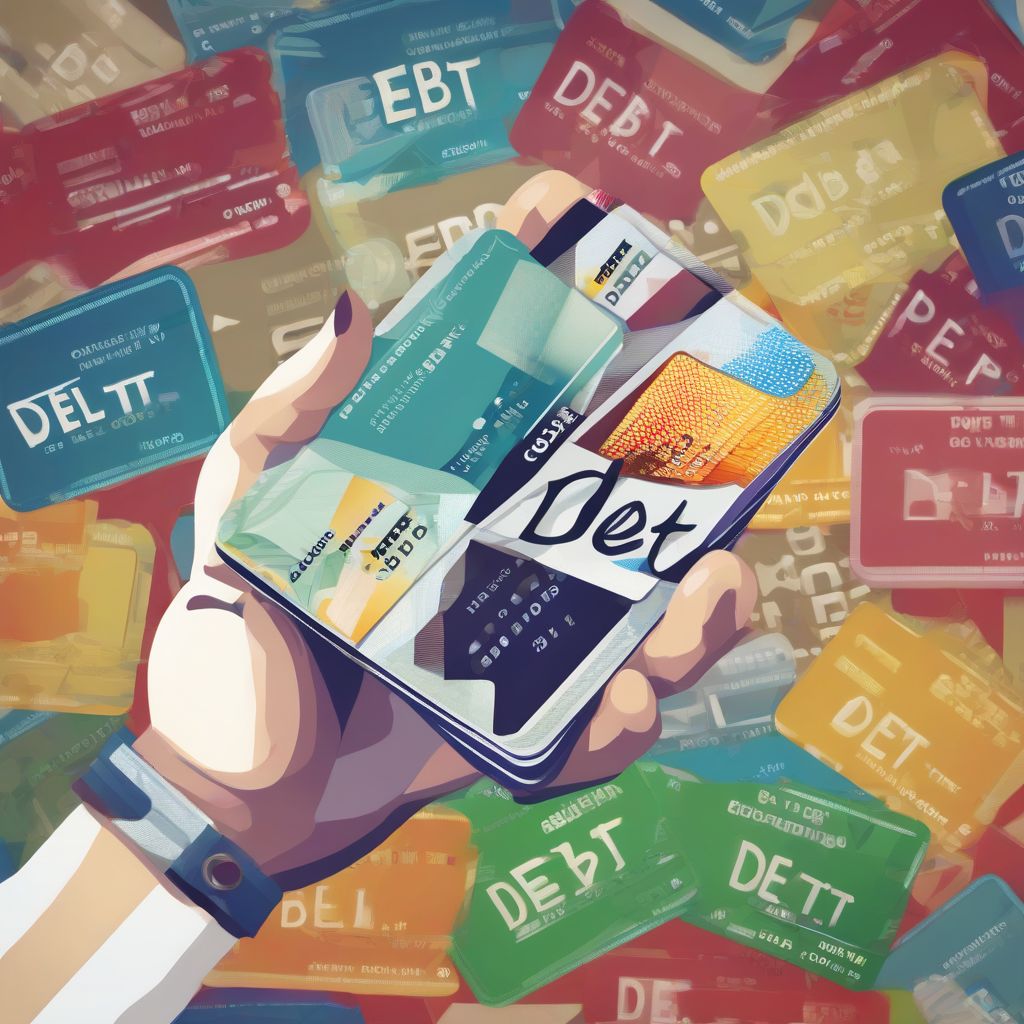Are you drowning in credit card debt and feeling overwhelmed by high interest rates? You’re not alone. Millions of Americans struggle with credit card debt, and it can feel like an impossible mountain to climb. But there’s hope! Credit card debt consolidation could be the lifeline you need to regain control of your finances.
This comprehensive guide will walk you through everything you need to know about finding the suckhoetuoitre.com/best-credit-card-debt-consolidation/">Best Credit Card Debt Consolidation loans for your unique situation. We’ll cover:
- What credit card debt consolidation is and how it works
- The benefits and potential drawbacks
- Different types of debt consolidation loans available
- Key factors to consider when choosing a loan
- Frequently asked questions about debt consolidation
What is Credit Card Debt Consolidation?
Credit card debt consolidation involves taking out a new loan to pay off your existing credit card balances. Instead of juggling multiple credit cards with varying interest rates and due dates, you’ll make one monthly payment towards your consolidation loan.
How Does Credit Card Debt Consolidation Work?
Let’s say you have three credit cards with a combined balance of $10,000 and an average interest rate of 18%. You find a debt consolidation loan with a 10% interest rate. You use the loan funds to pay off your credit cards, leaving you with a single loan and a lower interest rate. This can save you money on interest and simplify your monthly payments.
What are the Benefits of Consolidating Credit Card Debt?
- Lower interest rates: Potentially save money on interest payments, freeing up cash flow for other financial goals.
- Simplified finances: One monthly payment instead of managing multiple credit cards.
- Improved credit score: By responsibly managing your consolidated debt, you can potentially boost your credit score over time.
Types of Credit Card Debt Consolidation Loans
- Personal loans: Offered by banks, credit unions, and online lenders, these unsecured loans come with fixed interest rates and repayment terms.
- Balance transfer credit cards: These cards offer a promotional period with a 0% APR, allowing you to transfer high-interest balances and pay them off interest-free for a set time.
- Home equity loans and lines of credit (HELOCs): These options allow you to borrow against your home’s equity, but they come with the risk of foreclosure if you default on the loan.
Choosing the Right Debt Consolidation Loan
- Interest rates and fees: Compare offers from multiple lenders to secure the lowest possible interest rate and minimal fees.
- Loan terms: Choose a loan term that fits your budget and repayment timeline.
- Credit score requirements: Lenders have different credit score requirements, so check your eligibility before applying.
- Monthly payment: Ensure the new monthly payment is affordable and sustainable.
Frequently Asked Questions About Credit Card Debt Consolidation
Will Credit Card Debt Consolidation Hurt My Credit Score?
Initially, applying for a new loan can cause a slight dip in your credit score. However, as you make on-time payments and reduce your overall debt, your score can potentially improve in the long run.
How Do I Know if Debt Consolidation is Right for Me?
Debt consolidation is often beneficial if you have good to excellent credit and can qualify for a lower interest rate than you’re currently paying. However, if you have a low credit score or struggle with overspending, it might not be the best option.
Conclusion
Credit card debt consolidation can be a powerful tool for taking control of your finances and achieving your financial goals. By carefully considering your options, comparing loan offers, and making informed decisions, you can find the best path towards a debt-free future. Remember to research, ask questions, and choose a reputable lender to guide you through the process.


